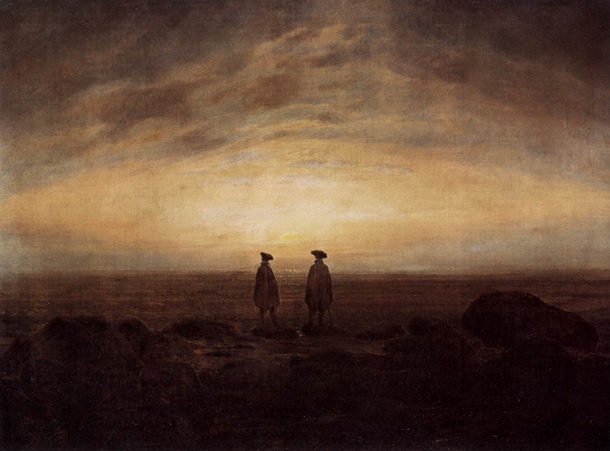
In des Sees Wogenspiele
Fallen durch den Sonnenschein
Sterne, ach, gar viele, viele,
Flammend leuchtend stets hinein.
Wenn der Mensch zum See geworden,
In der Seele Wogenspiele
Fallen aus des Himmels Pforten
Sterne, ach, gar viele, viele.
In the swelling of the lake’s waves,
Through the sunshine fall
Stars, oh, so many, many,
Flaming brightly down upon us.
When humankind and the lake are one,
In the soul’s swelling waves,
There will fall from Heaven’s gates
Stars, oh, so many, many.
—Franz Seraph Ritter von Bruchmann, Am See (ca. 1822)(S.H. transl.)
Franz von Bruchmann, the son of a successful merchant who moved from Cologne to Vienna at some point during the Napoleonic era, was a contemporary of Franz Schubert’s, and probably attended secondary school together with him. He was a typical figure of the early Romantic movement, inspired by nature, strongly influenced by Goethe and then the Schlegel brothers and Schelling. He seems to have renounced his family’s Catholicism around the time he was composing this poem, instead turning to the pantheistic views of the Schlegels. This poem shows that, highlighting the relationship between man and nature, especially in the line “wenn der Mensch zum See geworden,” literally, “when the human has become the sea.” Bruchmann was not known as a poet, but he was an enthusiastic sponsor of Schubert, hosting musical evenings (Schubertiade) at his home in Vienna.
This Lied is a prominent example of Schubert’s ability to produce wonders from unassuming and naïve poetical material. His music is exceptionally simple, and all the same hypnotic. It beautifully evokes the sound of waves lapping at the lakeside and Schubert brilliantly uses the singer’s human voice to present the soul “flammend leuchtend” (“flaming brightly”), just as the piano is used to emulate the waves, preserving the simply dichotomy of the poetic concept. It seems that Schubert has also tinkered a bit with the conclusion of the poem, adding an extra “viele” for emphasis, but he uses this in a very clever way in the musical composition, drifting off into a infinite world of dreams.
Listen to Ian Bostridge perform Franz Schubert’s setting of the poem:



